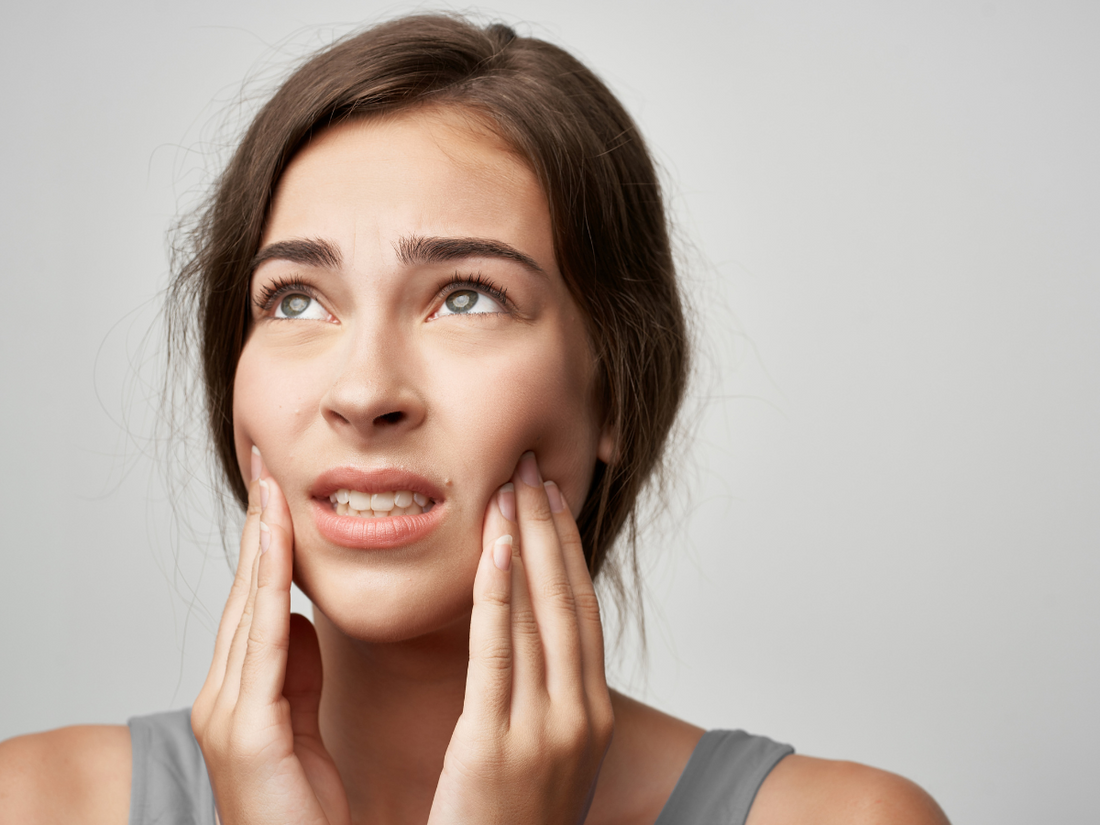
What is Bruxism
Share
Have you ever woken up in the morning with a sore jaw or headache, without any idea what caused it? If so, you may be suffering from bruxism, a common but often overlooked condition that affects one out of three people worldwide.
But what exactly is bruxism, and why do we do it?
The truth is, the exact cause of bruxism (teeth grinding and clenching) remains a bit of a mystery. Stress and anxiety are top suspects, but other factors like sleep disorders, the way your teeth fit together, or even genetics can play a role. Think of it as your body's way of subconsciously dealing with built-up tension.
Bruxism: Day or Night?
One of the intriguing aspects of bruxism is that it can occur during both waking hours and sleep. Research indicates that symptoms such as facial, head, and neck pain are often self-reported by individuals who grind or clench their teeth.
- Awake Bruxism: This form is usually linked to stress, anxiety, or concentration. Individuals may clench their jaw or grind their teeth during the day, often unconsciously during tasks that require focus or in stressful situations.
- Sleep Bruxism: Occurring during sleep, this type is categorized as a sleep-related movement disorder. It's often associated with other sleep disorders, such as sleep apnea and can be more challenging to detect and diagnose due to its occurrence during unconscious states.
How do I know if I have bruxism?
For many, it's an unconscious habit - a subtle yet potentially damaging routine. You might not even realize you have it until you wake up with jaw pain or a loved one mentions hearing a grinding sound emanating from your side of the bed. Indeed, bruxism, or teeth grinding, can go unnoticed until its symptoms become too evident to ignore.
Recognizing the Signs
The signs of bruxism can vary from person to person. Some individuals may experience noticeable symptoms such as jaw pain, headaches, or tooth sensitivity, while others may not be aware of their condition until a routine dental checkup reveals telltale signs of wear and tear on their teeth.
Signs & Symptoms to look out for:
- Tired or tight jaw muscles
- Jaw, neck or face pain or soreness
- Headache starting in the temples
- Worn-down, chipped, mis-aligned or sensitive teeth
- Earaches
- Tension or discomfort in the facial muscles
- Sleep disruption
Especially watch out during times of stress. Dr. Dena Fischer, a dental health expert at NIH notes “Situations that are stressful or frustrating can trigger the behavior. People often mention that they grind or clench their teeth while driving in traffic."
How is Bruxism Treated?
While bruxism is a common ailment, it is essential to understand the causes of your specific form of bruxism and seek a dental professional's help in determining the best course of treatment. The exact causes of bruxism are not well understood, but stress, anxiety, and certain medications can contribute to the condition. Treatment options for bruxism may include mouthguards, stress reduction techniques, and medication, depending on the severity of the condition.
Some common treatments you can do at home include:
- Wearing a dental guard while sleeping to protect the teeth from damage caused by grinding.
- Managing pain to relax the muscles that become sore from clenching.
- Find ways to relax your face and jaw muscles throughout the day. The goal is to make facial relaxation a habit.
- Try to reduce your daily stress and use relaxation techniques. Mindfulness activities like practicing yoga, meditation, or deep breathing exercises can help.
- Practice good sleep habits. Seek treatment for sleep problems.
- Schedule regular dental exams. Your dentist can spot early signs of teeth grinding.
Remember, early diagnosis and treatment are key to preventing long-term damage. So, if you suspect you might be grinding your teeth, talk to your dentist! They can assess the situation and recommend the best course of treatment.
Related Products

